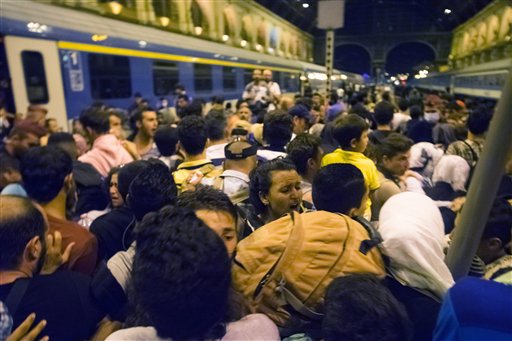
As the crisis brews over Syrian refugees trying to enter European countries, questions have been raised over why they are not heading to wealthy Gulf states closer to home.
Although those fleeing the Syrian crisis have for several years been crossing into Lebanon, Jordan and Turkey in huge numbers, entering other Arab states – especially in the Gulf – is far less straightforward.
Officially, Syrians can apply for a tourist visa or work permit in order to enter a Gulf state.
But the process is costly, and there is a widespread perception that many Gulf states have unwritten restrictions in place that it make it hard for Syrians to be granted a visa in practice.
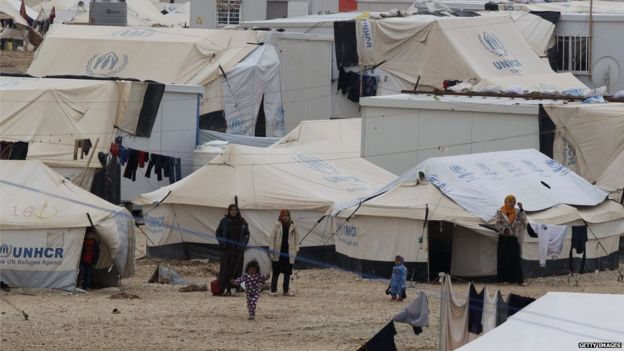
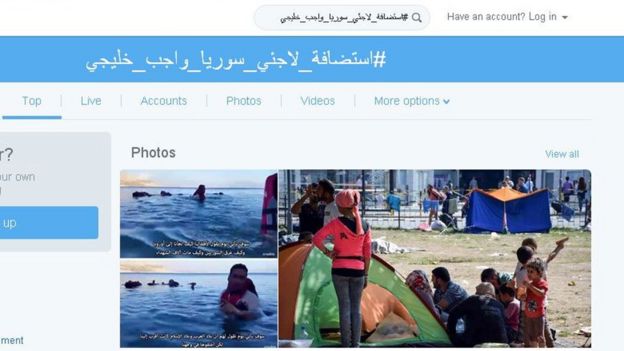
The Arabic hashtag #Welcoming_Syria’s_refugees_is_a_Gulf_duty has been used more than 33,000 times on Twitter in the past week.
Users have posted powerful images to illustrate the plight of Syrian refugees, with photos of people drowned at sea, children being carried over barbed wire, or families sleeping rough.
A Facebook page called The Syrian Community in Denmark has shared a videoshowing migrants being allowed to enter Austria from Hungary, prompting one user to ask: “How did we flee from the region of our Muslim brethren, which should take more responsibility for us than a country they describe as infidels?”
Another user replied: “I swear to the Almighty God, it’s the Arabs who are the infidels.”
‘Let them in!’
The story has also attracted the attention of regional press and political actors.
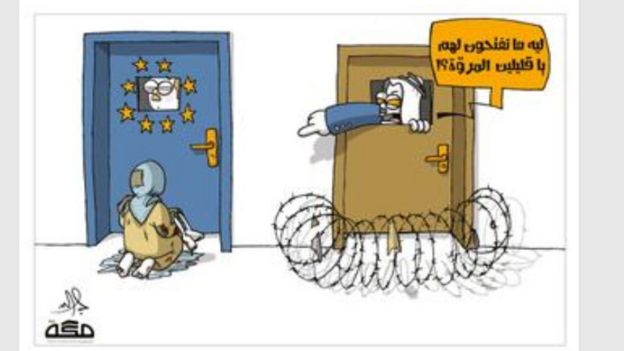
The Saudi daily Makkah Newspaper published a cartoon – widely shared on social media – that showed a man in traditional Gulf clothing looking out of a door with barbed wire around it and pointing at door with the EU flag on it.
“Why don’t you let them in, you discourteous people?!” he says.
The commander of the opposition Free Syrian Army (FSA), Riyad al-Asaad,retweeted an image of refugees posted by a former Kuwaiti MP, Faisal al-Muslim, who had added the comment: “Oh countries of the Gulf Cooperation Council, these are innocent people and I swear they are most deserving of billions in aid and donations.”
But despite the appeals from social media, Gulf states’ position seems unlikely to shift in favour of Syrian refugees.
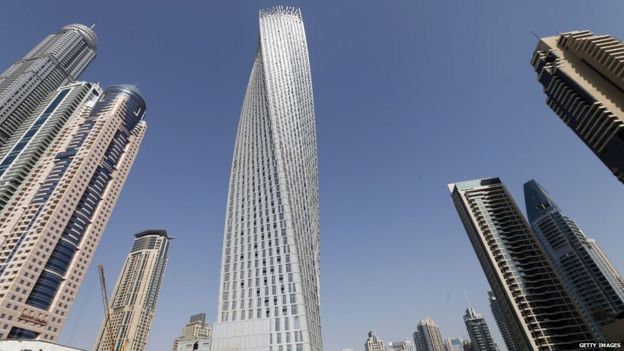
In terms of employment, the trend in most Gulf states, such as Kuwait, Saudi Arabia, Qatar and the UAE is towards relying on migrant workers from South-East Asia and the Indian subcontinent, particularly for unskilled labour.
While non-Gulf Arabs do occupy positions in skilled mid-ranking jobs, for example in education and health, they are up against a “nationalisation” drive whereby the Saudi and Kuwaiti governments in particular are seeking to prioritise the employment of locals.
Non-native residents may also struggle to create stable lives in these countries as it is near impossible to gain nationality.
In 2012, Kuwait even announced an official strategy to reduce the number of foreign workers in the emirate by a million over 10 years.
BBC

Leave a Reply
You must be logged in to post a comment.